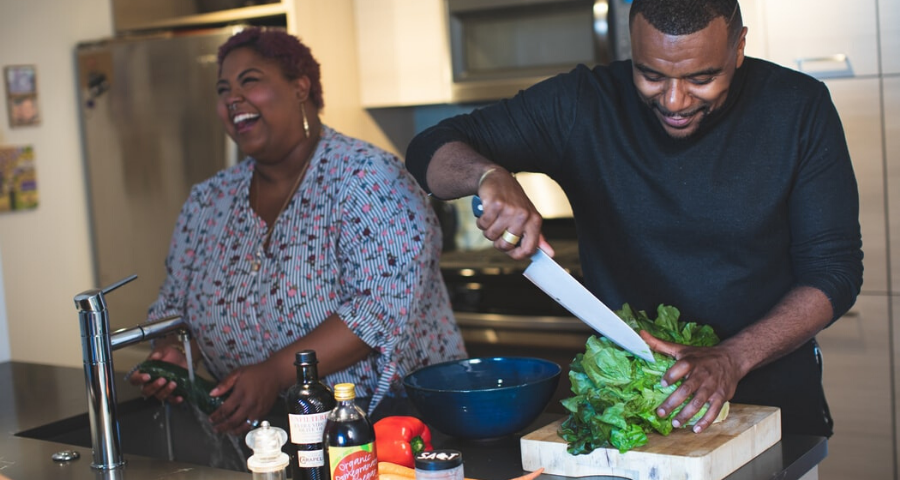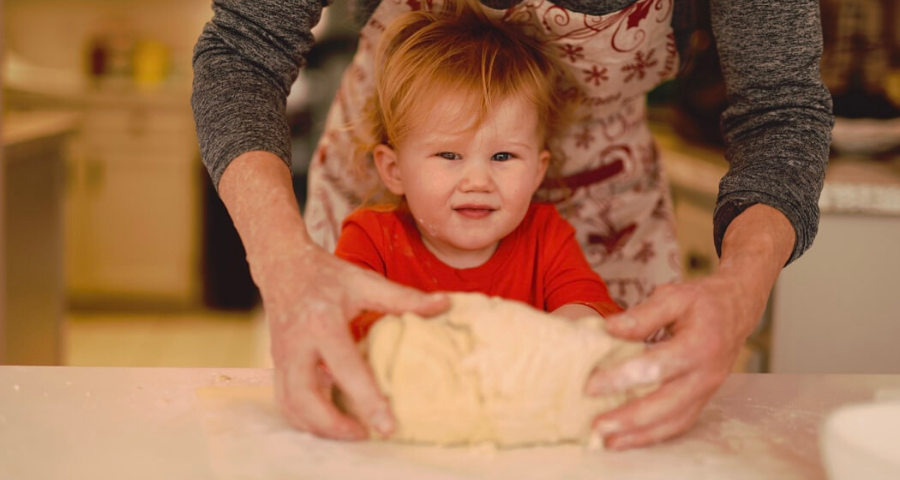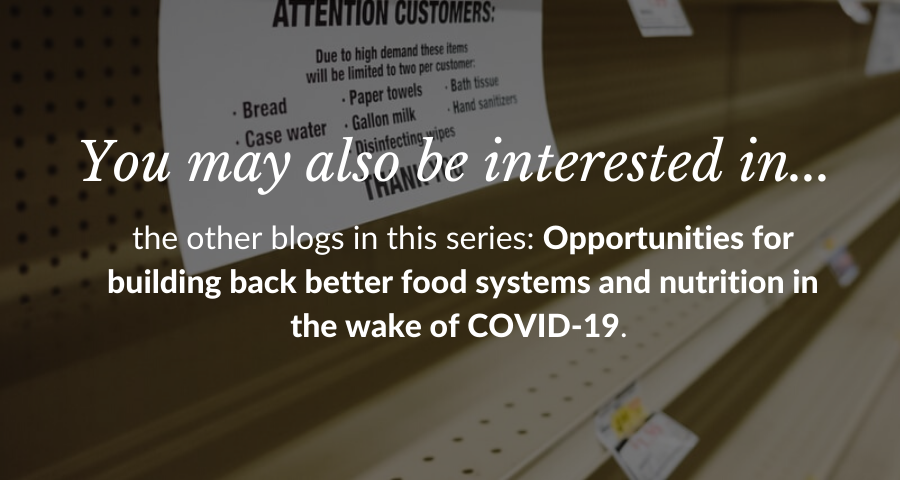-- Corinna Hawkes, Director of the Centre for Food Policy
The Covid-19 pandemic has forced many people to change their habits. We’ve taken to working from home, sheltering in place, self-isolating, avoiding handshakes and hugs. We’ve been instructed to distance ourselves from others. Move back, avoid even small group gatherings, and keep to ourselves. Confusion and fear have inevitably led some people to hoard cleaning materials, bathroom essentials, and also food.
Empty supermarket shelves are a sign of worry; can I survive if forced to stay home for weeks on end? Will there even be food for me to buy by the time I get my next pay-cheque? The focus of food hoarding is, of course, products with a longer shelf-life: dried and canned goods, pasta, flour, UHT milk, vegetable oil; but fresh foods are not immune to this crisis.
Commentators have focused on potential disruptions to the supply chain that could slow the re-stocking of shelves. Illness among farm workers, lorry drivers, and shop assistants could potentially interrupt the flow of food from farm to fork. That may constrain food choices and make it hard for some to eat healthily whilst in isolation, just as restrictions on movement are making physical activity more challenging than usual.

But there is another challenge. While maintaining good habits in what we eat and how we exercise are critical to nutrition and health, there is a social dimension to be nurtured too. Meals have always been a glue that binds relationships. Family, friendships and cultures all centre on the sharing of food. Sometimes around its production, at other times around its preparation, but always around the steaming dish to be savored.
Social distancing is important for the public health goal of reducing physical proximity and flattening the curve of new infections. But in so doing, there is more need than ever for what might be called social bridging. Dan Buettner, for one, has been documenting how human longevity involves not just a good diet and access to high quality healthcare, but also a key role for maintaining social networks.
The communities and countries with the highest levels of healthy life expectancy are ones which promote and support social interaction at all ages. Take Japan, where women have had the world’s highest life expectancy since 1963. The Japanese generally enjoy a diverse high-quality diet, there is universal access to health services, and cultural norms promote physical activity, but there is also a sense of community and, as the population has aged, promotion of a singular search for purpose.
What role do we play in building better communities, enhancing the livability of neighbourhoods, and ultimately, committing to living in a better place? Our food systems are framed by the fabric of our societies. Our societies are structured around the contributions we each make to securing healthy diets, physical activity, and emotional engagement with the people around us.

You may have read about recent initiatives along those lines. For example, care-mongering that started in Canada, involving setting up social media or WhatsApp accounts that offer help or care to those that need it most. It started with offers to shop and deliver food, but rapidly escalated to setting up online exercise and cooking classes. Others have set up Twitter accounts letting everyone know that if messaged, individuals are available to run errands and even deliver cooked meals where help is needed. These acts matter, not just because they provide products or information. Help isn’t just a physical good.
I spent several years working for the United Nations’ humanitarian agency, the World Food Programme. It’s goal since the 1960s has been to deliver food assistance to people is need, as in Yemen or South Sudan. In times of crisis more people than usual lack access to food. In some parts of the world, hunger may be the norm, but lurking like a dark shadow on the horizon, famine is never far away. Bringing a basket of food to a family represents the security of knowing where the next meal will come; it saves lives. But I quickly learned that bringing a sense of hope, a sense that somebody ‘out there’ cares whether they live or die, matters so much more. This was humbling to learn, but a pivotal moment in my own life and career.
Social distancing will save lives. But in promoting awareness of the need to continue to eat well and exercise, we must also promote social bridging. An emotional rapprochement will also save lives. Pick up the phone. Open the window and sing to random passers-by. Mail postcards to distant relatives. Cook with a friend. Offer to deliver a meal to a neighbour. Yes, in all this maintain distance and practice appropriate hygiene. But reach out. If we all seize this moment to re-engage with our family, friends and community and promote social bridging beyond the current crisis, we will have laid very deep foundations for better nutrition and health for years to come. That’s not a bad habit to learn.
"Meals have always been a glue that binds relationships. Family, friendships and cultures all centre on the sharing of food."
Patrick Webb is Professor and former Academic Dean at Tufts University’s graduate school of nutrition, holding the MacFarlane Chair for Public Policy; former Chief of Nutrition for the UN World Food Programme; until recently a member of the International Science Council which oversees science quality and relevance of the Consultative Group on International Agriculture Research (CGIAR).
Patrick Webb is a scholar-practitioner who has worked for 35 years in the fields of development policy and practice as well as in humanitarian emergency response. He is widely respected for his commitment to high-level rigor both in scientific endeavor and in the application of science to real-world problems.
He currently manages several large research activities, for example as Director of the Feed the Future Innovation Lab for Nutrition (ongoing fieldwork in Nepal, Uganda, Malawi, Egypt, Mozambique and Bangladesh), and as Director for USAID/Food for Peace’s field trials of food aid products in Burkina Faso, Malawi and Sierra Leone.

